Fecal Transplants Are Going Viral As Potential Depression And IBS Relief, Here Is What Experts Say You Should Know
Hack Your Health: The Secrets of Your Gut, a Netflix documentary exploring the connection between gut health and brain function, has been generating a lot of discussion on social media. One portion that has been specifically going viral is fecal transplants (the process of healthy poop being transplanted into an individual with an illness to improve the gut microbiome of the recipient).
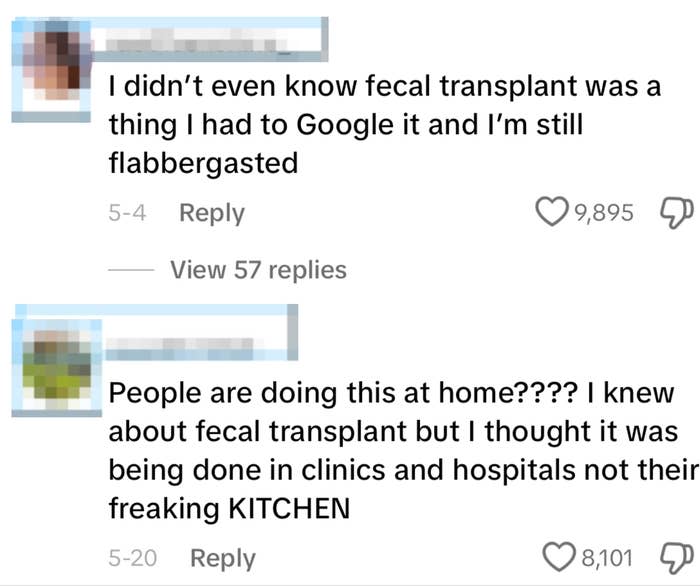
The documentary features a woman named Daniell Koepke who talks about how she has found relief from irritable bowel syndrome (IBS) by performing a DIY poop transplant at home, using her brother's stool.
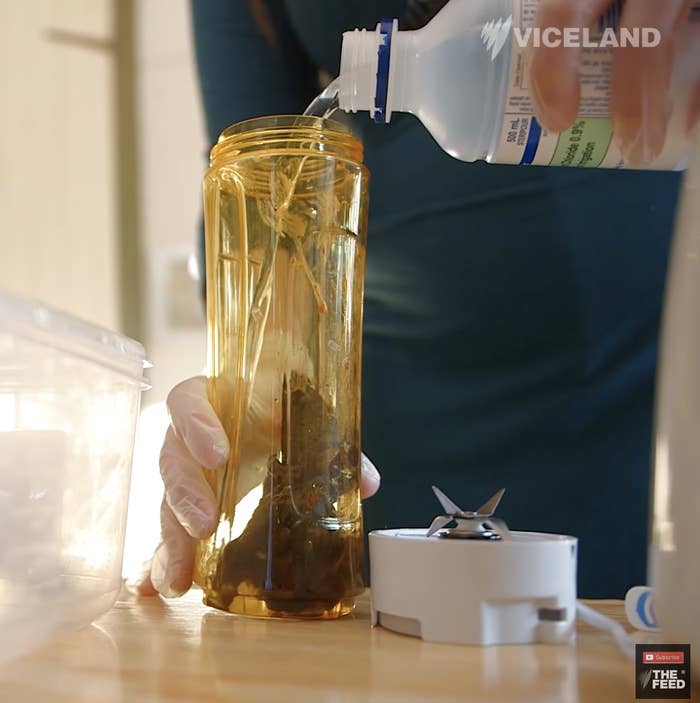
If you aren't sure what an at-home poop transplant entails, you can find videos on YouTube showing the process of blending fecal matter and encapsulating it for consumption.
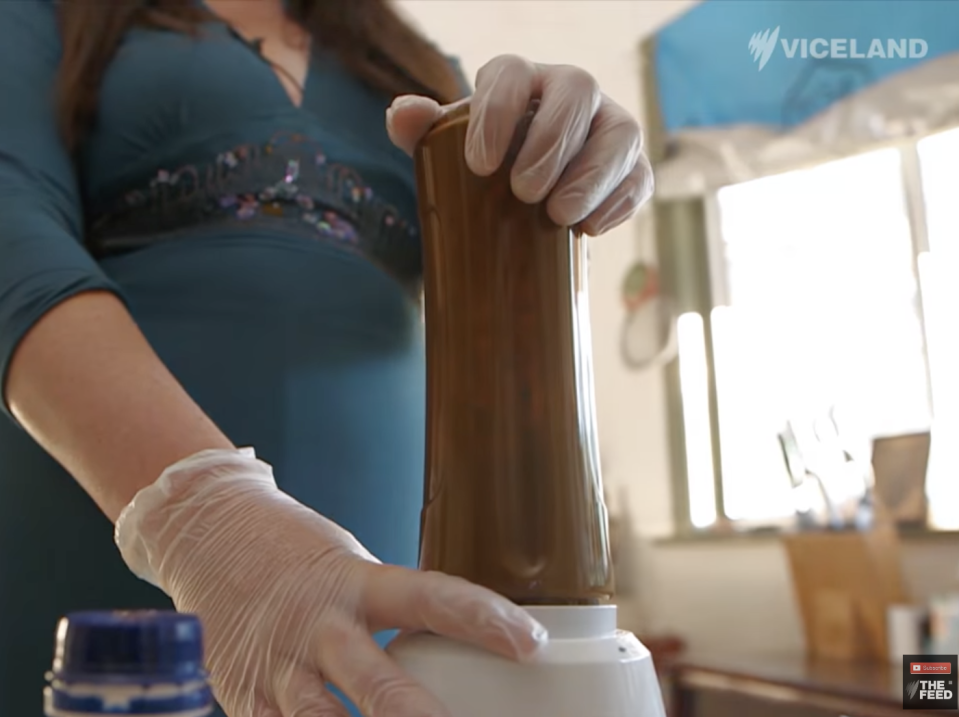
"I think for most people it would be scary to do a fecal transplant, especially when it is DIY. I also think that most healthy people don't know what it's like to get to a place where your quality of life is so low. I felt like I had no other options," Daniell said in the documentary. After ingesting her brother's stool via pills, she was able to go to the bathroom for the first time in three years on her own.
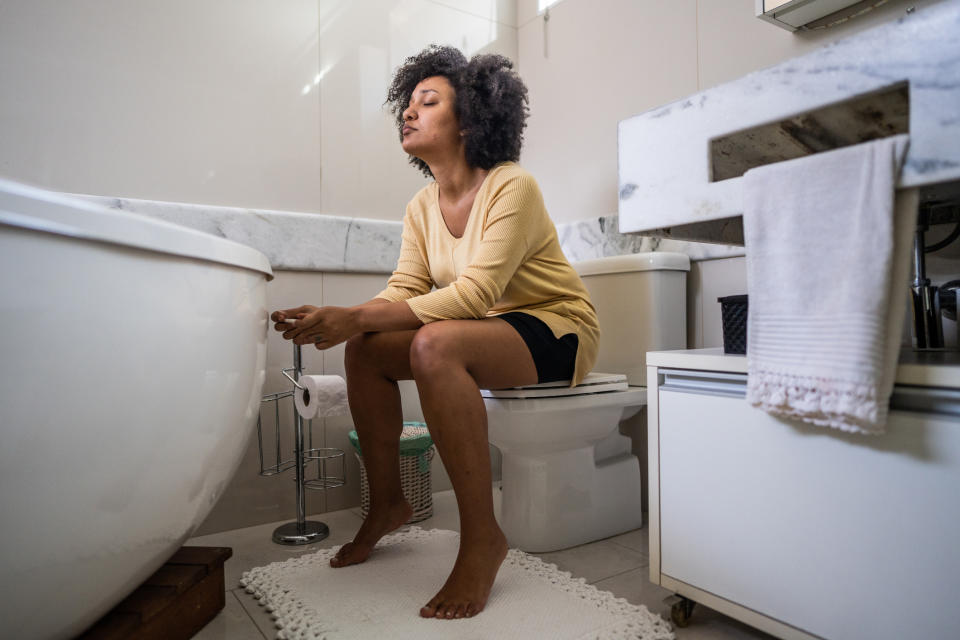
Daniell also shared that after she started the fecal transplants, she developed worse acne (her brother struggles with hormonal acne). So, she decided to try her boyfriend's stool instead. While her acne did stop after her boyfriend became a donor, she started noticing signs of depression (her boyfriend struggles with his mental health). Once Daniell switched back to her brother's stool, she said the depression went away within a week.
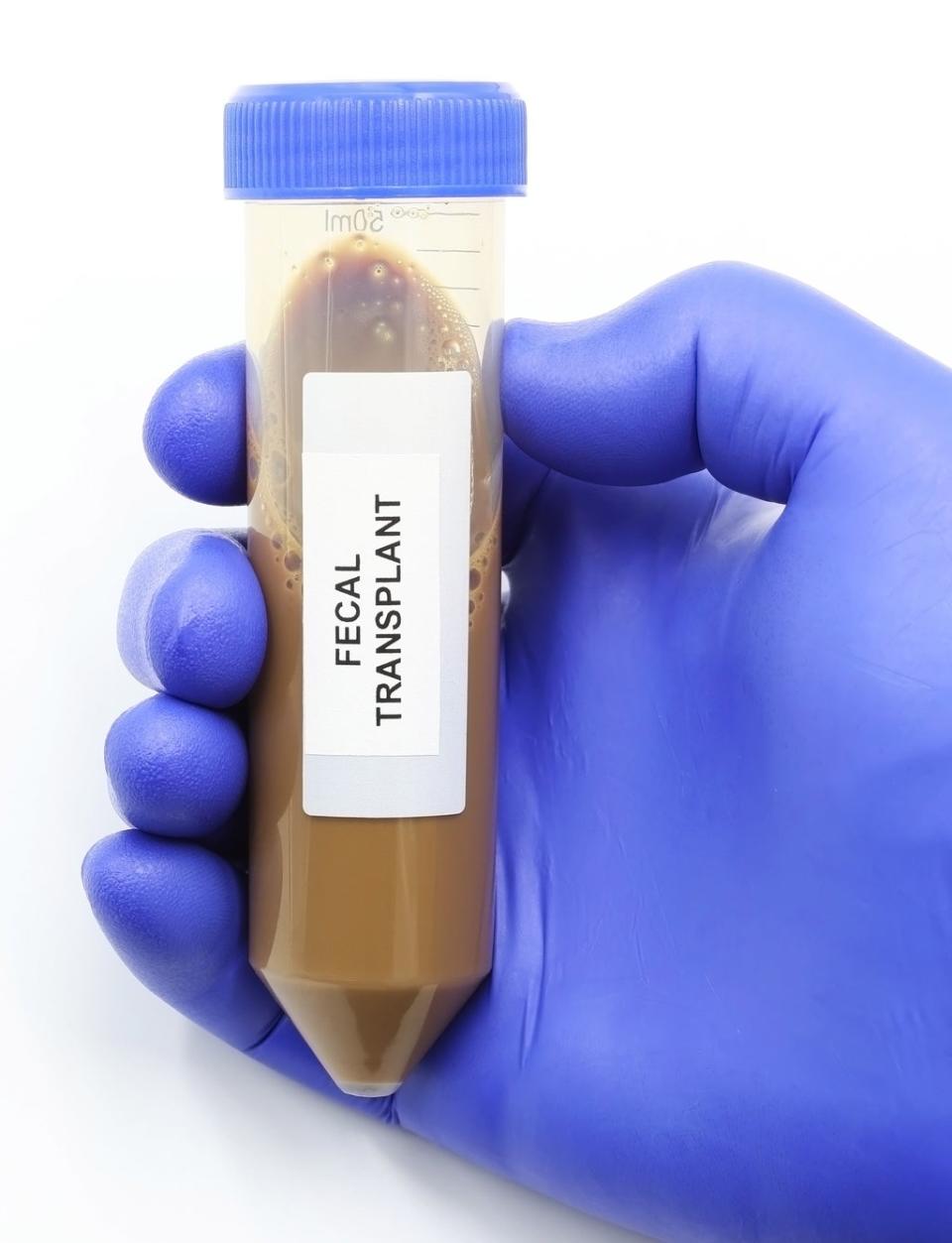
To get more information, BuzzFeed turned to two experts to weigh in: Board-Certified Gastroenterologist Dr. Henry Herrera who specializes in diagnostic/therapeutic endoscopy and gut health, as well as Internal Medicine Doctor Lauren DeDecker.


@drhenryherrera / instagram.com, @drdedeck / tiktok.com
Herrera said a fecal transplant is a procedure in which healthy stool is transplanted into the large intestine of an individual with an illness to cure the infection by repopulating the patient with healthy, appropriately balanced gut flora.
In addition, a fecal transplant is most commonly performed on patients suffering from Clostridioides difficile (or C.diff), a bacterium that causes colon infections. DeDecker added, "There are multiple methods of performing a fecal transplant, with the most common being fecal transplant during colonoscopy. Less common methods include enema, nasogastric tube, and pills."
Both Herrera and DeDecker confirmed that fecal transplants are currently being studied for the treatment of multiple mental health disorders, IBS, and obesity. However, most of them are still in preclinical trials.
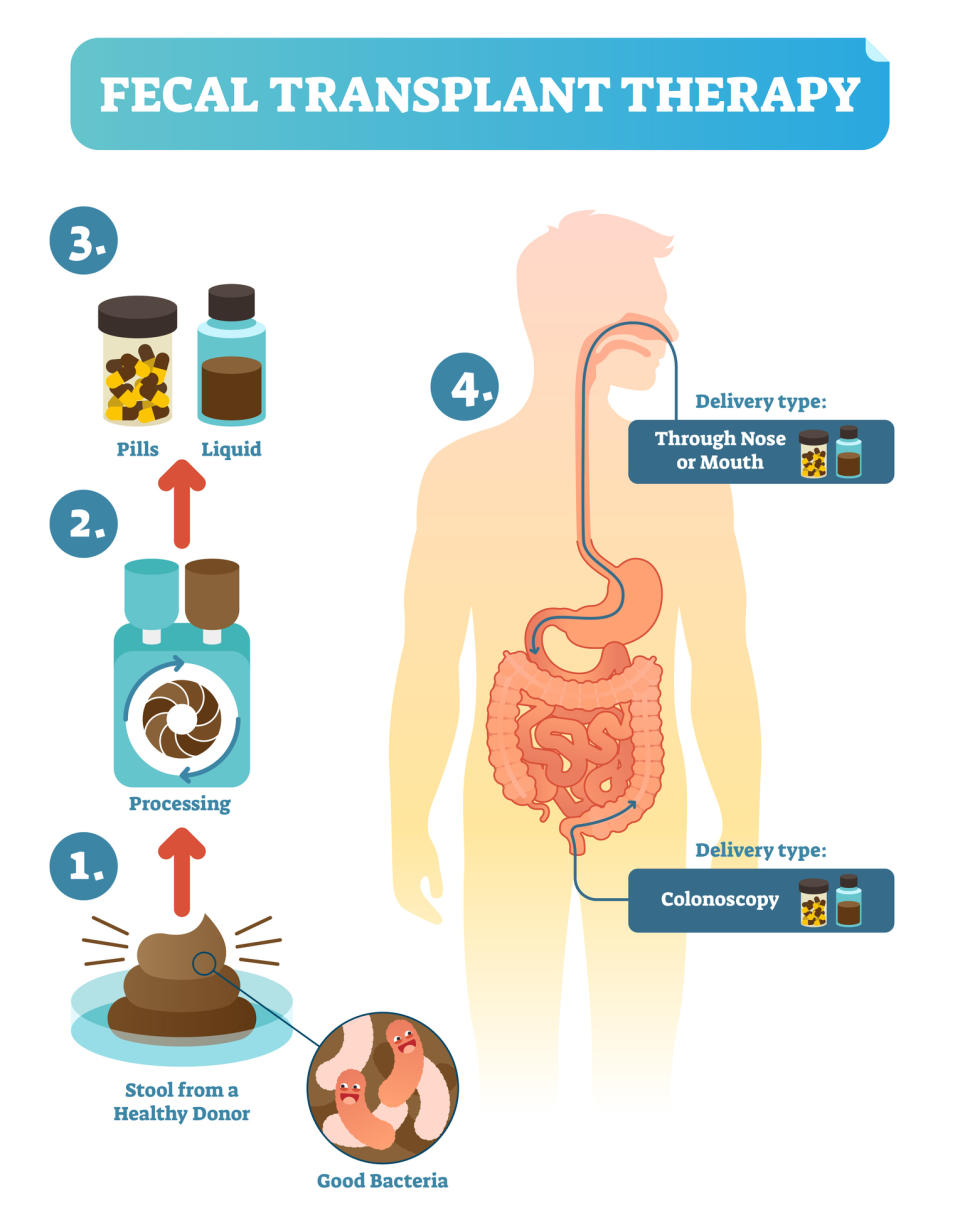
"There are plenty of studies that show a difference in the gut flora of an individual depending on their disease process. For example, a healthy individual will have a very different population of gut flora compared with that of a patient who has inflammatory bowel disease or someone with mental health disorders. In addition, the gut-brain axis is a known reciprocal regulatory mechanism that transmits hormonal, immunologic, and neurologic information between the GI tract and the brain, affecting both organ systems," explained Herrera.
All this being said, attempting to perform a fecal transplant at home is unsafe and not recommended. "Trying to do a DIY fecal transplant puts the individual at risk for infection, sepsis, and bowel perforation — which can be fatal," said DeDecker.
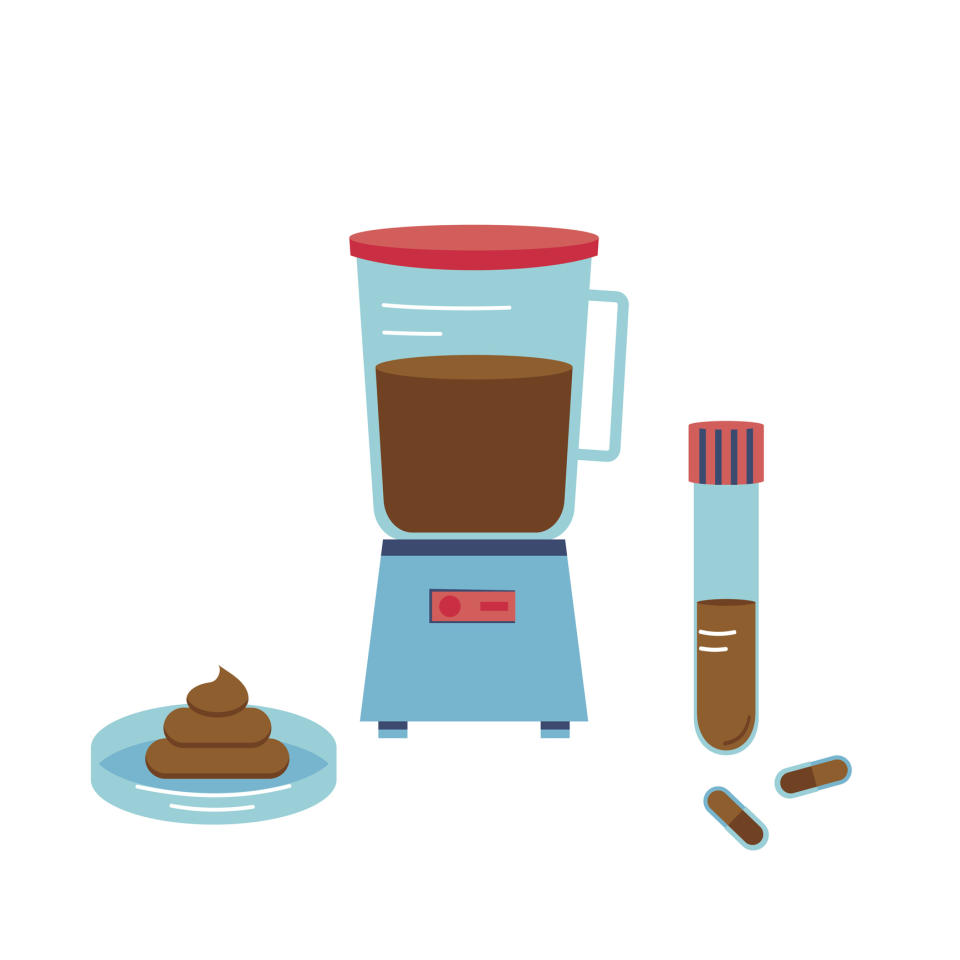
Both doctors also said it is important to note that when fecal transplants are performed in medical settings, the donors and feces have undergone extensive safety screenings. "The infectious disease screenings include pathogenic E.coli, C.diff, viruses, hepatitis, HIV, covid, Epstein-Barr, parasites, and more" DeDecker said. "In addition, social history, including place of employment, family history, dietary history, psychiatric history, and recent travel, all are assessed prior to consideration for donor suitability," added Herrera.
Currently, fecal transplants are only FDA-approved for the treatment of recurrent C. diff infections. "When performed in a medical setting, recurrent rates for C diff are around 90%, with a low risk associated with it. And fecal transplants absolutely work for C. diff infection! I’ve performed plenty of them, and rarely do they require a repeat transplant to cure their infection." Herrera said.
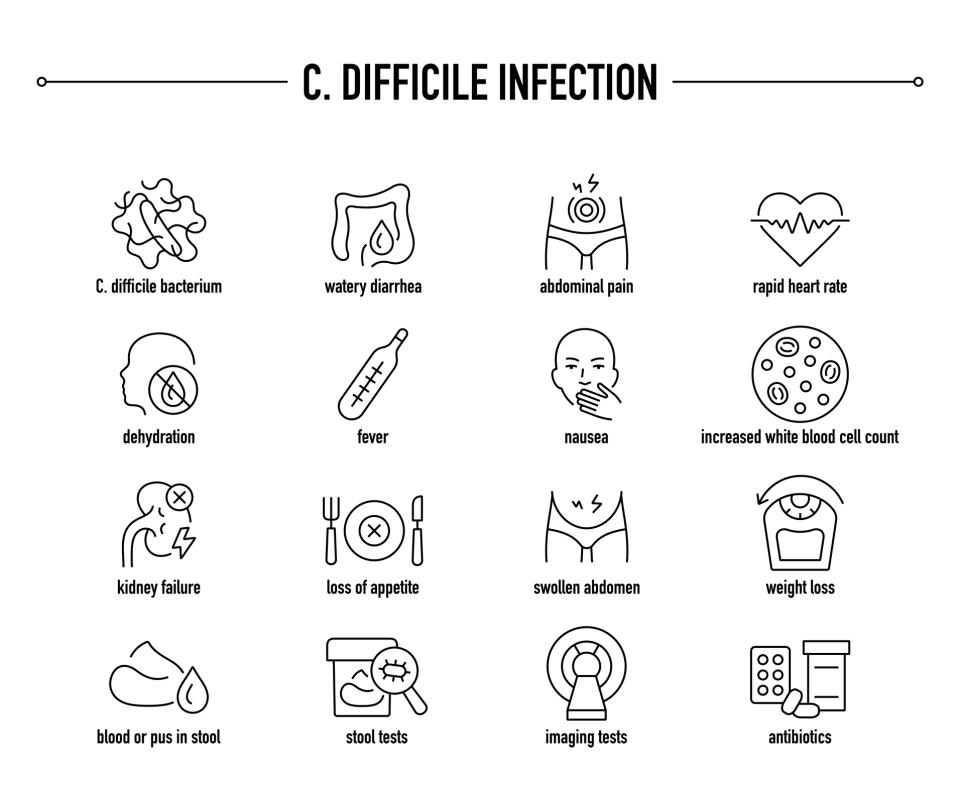
And Herrera said that while there is no definite proof that fecal transplants result in mental health benefits, it is well-documented that the gut microbiome plays a major role in overall health. "So, it is certainly possible that it can serve some benefit for mental illness," said Herrera.
To sum things up, when performed properly by medical professionals, a fecal transplant can fight infections like C. diff. — and having a healthy gut microbiome aids in overall health. Hopefully, with more research, we can learn about its connection with bowel disorders, mental health, and more.
Special thanks to both doctors — follow Herrera on Instagram and TikTok and DeDecker on Instagram and TikTok.


